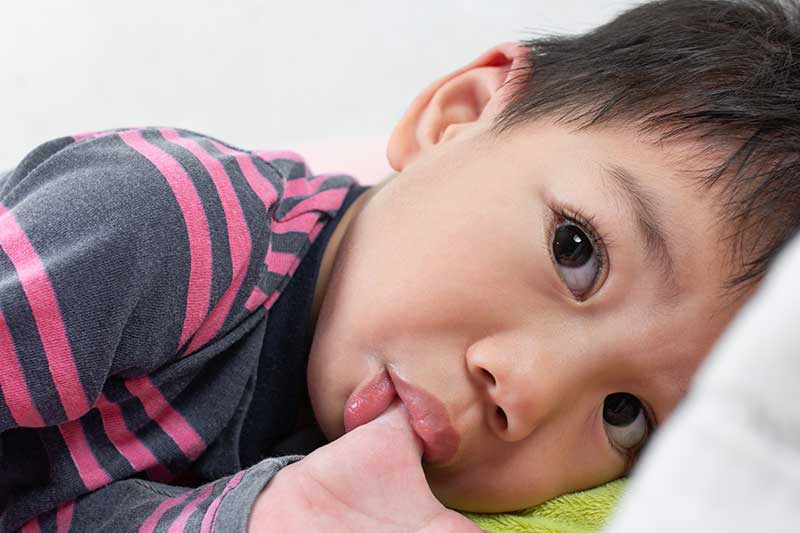
When Do You Draw the Line on Thumb Sucking?
Most parents are aware that thumb sucking should have a limit and there is a time when it should end. When you see a child who is five or six sucking a thumb, it just doesn’t seem right.
Yet when a baby sucks a thumb, it seems normal. And you are right — it is normal.
When Is Thumb Sucking Normal Behavior?
Scans have even shown babies in the womb sucking their thumbs. It is normal behavior for infants and is a reflex that gives babies a sense of comfort and security. Young children may use it as a coping behavior when separated from their parents or when they feel tired to help themselves fall asleep.
When Should It End?
An article published by Colgate references the American Dental Association (ADA) on this question. The ADA says by the time children reach the age of four, thumb sucking should stop. Many children naturally quit on their own.
What Can the Repercussions Be If Doesn’t Stop?
It can adversely affect how the mouth, teeth and jaws develop and can cause tooth misalignment. It can affect the palate and the permanent bite. This is especially problematic when secondary teeth are coming in. It can cause the child’s front teeth to jut out or prevent the upper and lower teeth from touching.
What Can You Do to Discourage Thumb Sucking After Four?
Experts suggest ignoring the problem and seeing whether your child quits without any prompting until after the age of four. By the time your child reaches kindergarten you may want to encourage him or her to stop. The following are some tips you can try:
- Reward the child for progress made toward quitting
- Praise and encourage your child when she or he tries to stop
- Discuss the benefits of stopping with your dentist
- Try putting a band aid or sock on the thumb to discourage sucking but also reinforce with positive encouragement
Do You Have Questions about Dental Care?
Our dentists and staff at Hutto Hippo Family Dental are glad to talk about your concerns and answer your questions.






Recent Comments